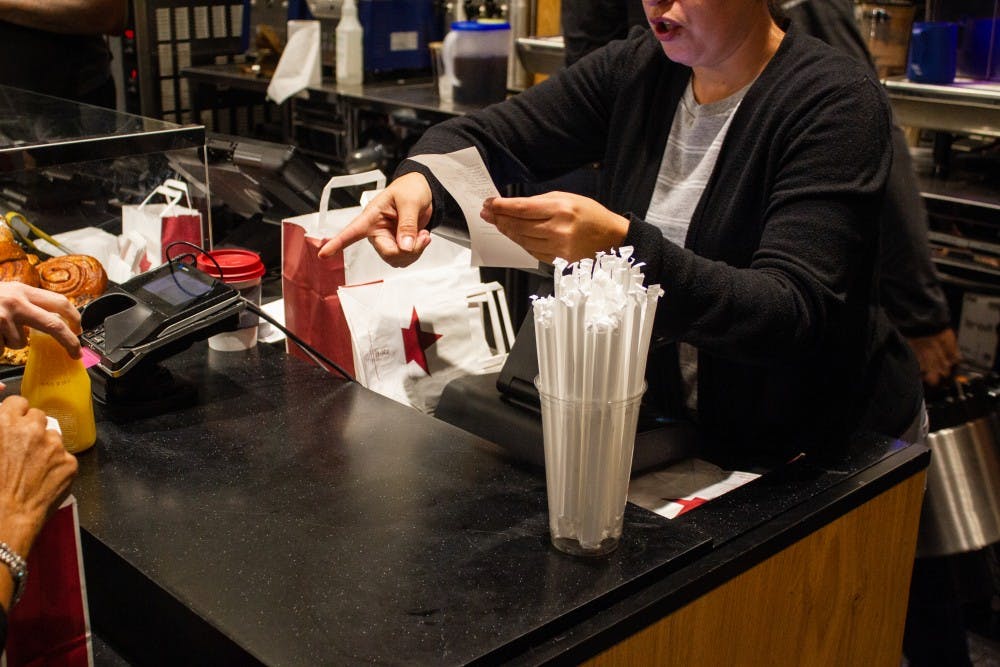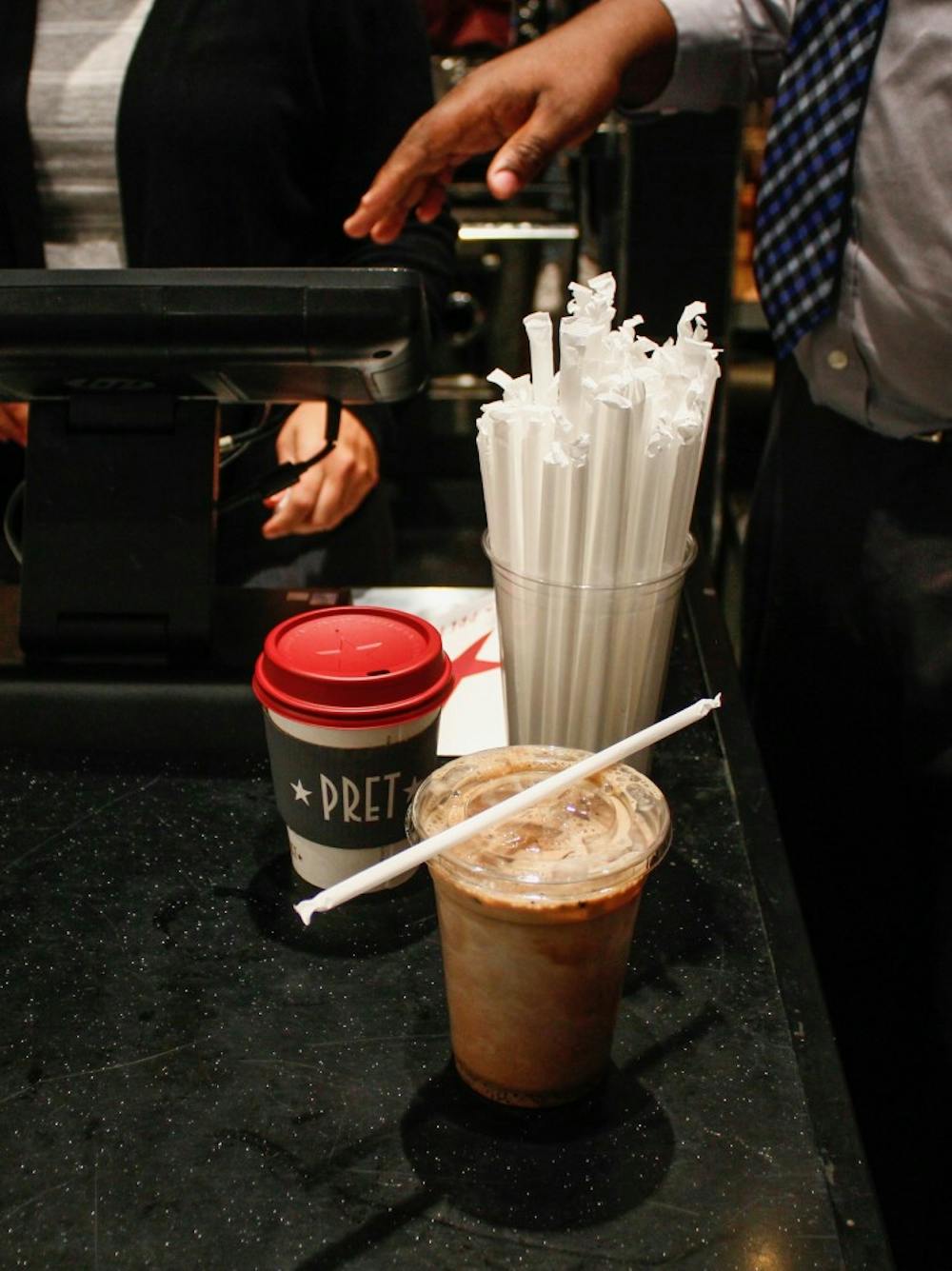
Penn Dining is quickly shifting from plastic to paper straws in response to the nationwide trend towards environmental sustainability.
The new straws have been introduced in all campus dining locations except Starbucks under Class of 1920 Commons, said Bill Hess, the resident district manager for Bon Appétit Management Company, which oversees Penn's food services. He said the transition will be complete by 2020.
Penn's efforts to transition to paper straws comes in wake of Starbuck's plans to use entirely paper straws by 2020. McDonald's banned plastic straws in its UK and Ireland locations earlier this year but faced controversy because the paper straws were unable to be recycled due to their thickness.
Hess said when large companies try to replace plastic with paper straws, the main challenges arise from a lack of consistent supply of paper straws and the accompanying foundational shifts in the supply chain. At Penn, even in the dining locations that have introduced paper straws, plastic straws are still offered instead on some days depending on supply.
“When somebody like a Starbucks looks worldwide on going plastic-free on their straws, that’s literally a couple billion straws that they have to convert from plastic to paper — an enterprise that size takes literally a couple years,” Hess said.

In addition, Hess said paper straws can be more difficult to use and might not sit favorably with customers, exacerbating the already lengthy process of conversion.
Penn, though, is ahead of the curve — Hess said Bon Appétit began the shift towards paper straws in April 2018. Far before this deadline, most of the conversion on campus has already happened, said Barbara Lea-Kruger, director of communications and external relations for Penn Business Services.
“One of the main reasons why Penn chose Bon Appétit as their service providers is because they’re one of the world leaders in sustainability and general concern for the entire food chain,” Lea-Kruger said.
Hess added that since the beginning of the 21st century, Bon Appétit has worked to support local agricultural companies, regulate seafood according to the Seafood Watch guide, and significantly reduce antibiotic use in farm animals. He cited examples of how the company led the drive for migrant tomato harvesters and farm workers in Florida to be paid a fair wage in 2009.
Lea-Kruger added that Penn Dining gave free metal straws to all students living on campus at the start of the fall 2019 semester to further promote sustainability.
“We recognize that students don’t always eat in our dining facilities," she said. "The metal straws are a way to ensure that they have sustainable straws when they go out in the community."
Students have responded favorably to the changes.
“With Pret’s major consumer base consisting of Penn students, the shift from plastic to paper sets a good example in instilling values of sustainability and environmental consciousness in the student body,” College sophomore Alicia Lan said.
“Although paper straws are quite a bit harder to use, I think I speak for the majority of the student body when I say that sustainability needs to come to the top of the priority list for institutions like Penn,” Wharton freshman Fiona Ku added.
The Daily Pennsylvanian is an independent, student-run newspaper. Please consider making a donation to support the coverage that shapes the University. Your generosity ensures a future of strong journalism at Penn.
Donate



